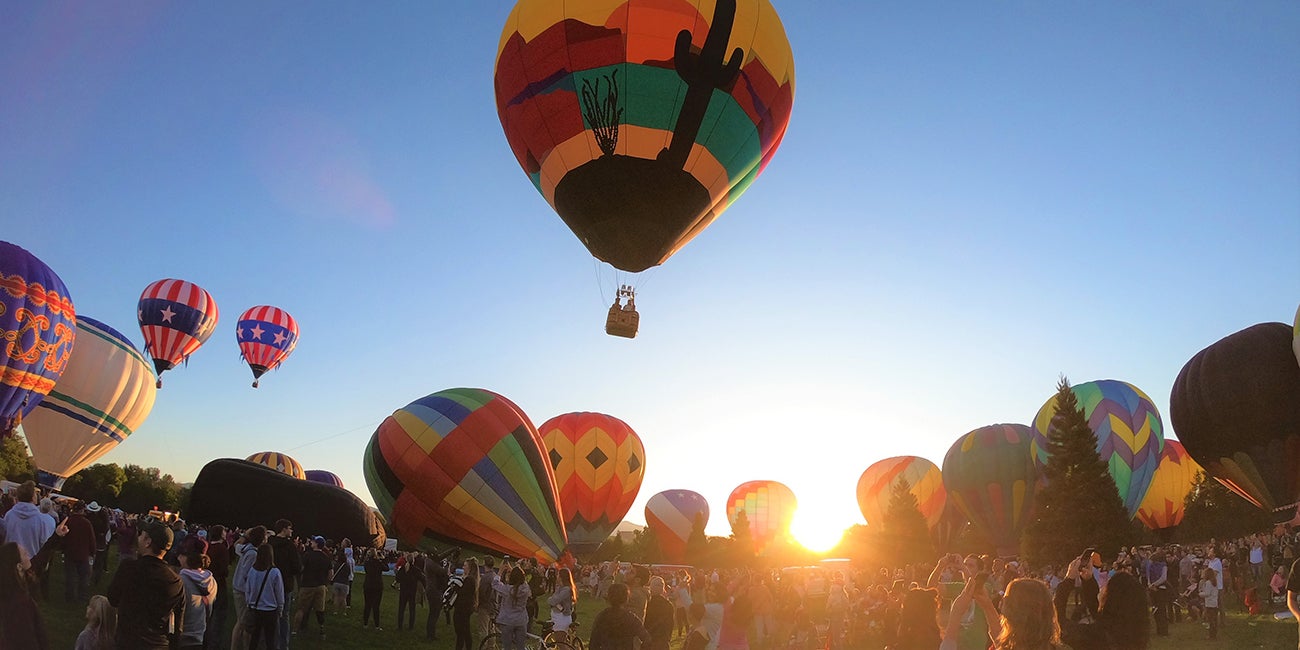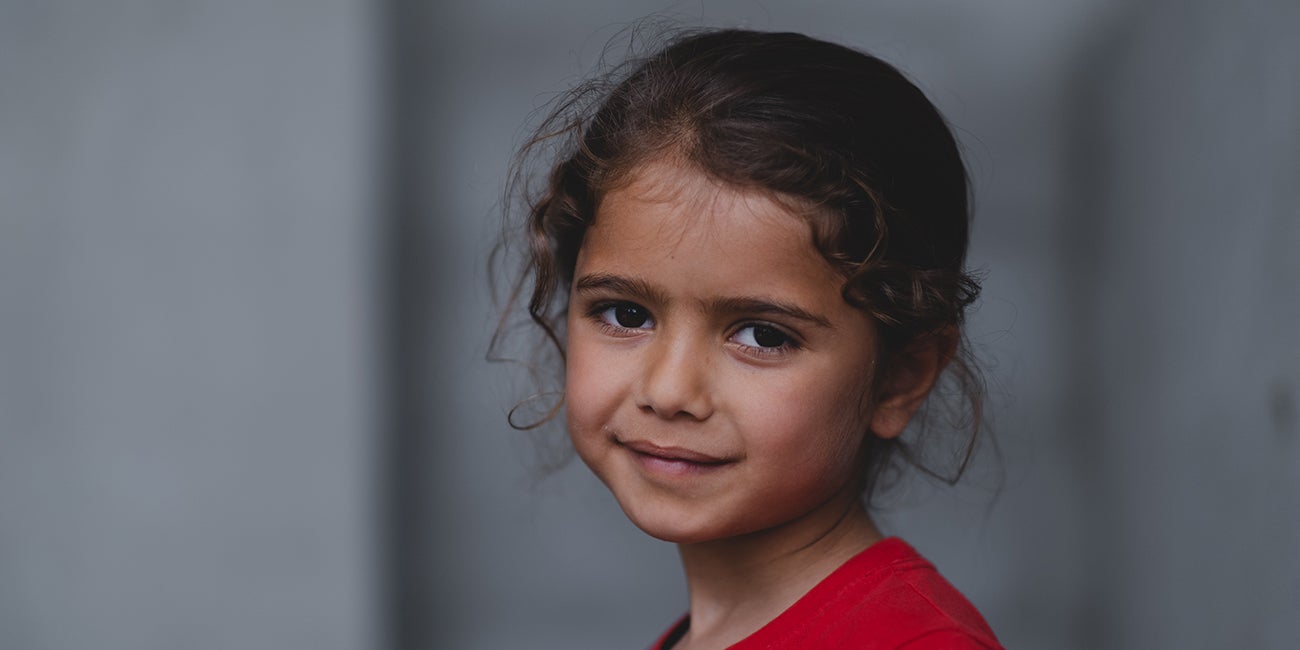Editor’s Note: As part of Boise State’s ongoing efforts to expand educational access, The Blue Review is publishing occasional student scholarship, including the following piece written by a Boise State student who is incarcerated.

Jason is an inmate, currently residing at the Idaho State Correctional Institution, who is participating in a study to assess the potential impact of higher learning on recidivism. He believes passionately in the transformative power of education and is a champion of progressive rehabilitative opportunities for incarcerated persons.

The Benefits of Supporting Refugee Resettlement
Ildar hugged himself tightly to the trunk of a tree. He hoped he was up high enough in the thin branches to stay safely hidden from the enemy. On the other side of the river he could see tanks, transport vehicles and troop patrols. Smoke from his village filled the air.
Ildar’s lip quivered as he felt cold tears sting his eyes. His sister had been with him when they started running. She’d lost her grip on his hand and fell down a little embankment where the irrigation for Grandfather Ivan’s garden began. Ildar turned to pull her out when bullets whirred past his head. Heart pounding, he threw himself flat and crawled into an area overgrown with weeds.
Ildar heard men shouting all around him as they closed in. He breathed as shallow as he could in an effort to be as quiet as possible. The frigid air of winter carried the thump of enemy footsteps. Ildar’s sister screamed. A short time later he heard the deep rumble of a truck. He strained to make sense of things as he heard doors open, then close before the truck drove away.
Peeking up out of the brush, Ildar sensed he was clear so he ran as fast as he could towards the cover of the trees…
Imagine running terrified amidst bullets or missile strikes without any sense of certainty that you, or anyone you love for that matter, will survive to see another day. Imagine further still that you do in fact survive another day, possibly separated from family, only to be without food or shelter or possessions or healthcare or… anything at all. Then imagine yourself being fortunate enough to make it to a densely populated border encampment where tens of thousands of other displaced people quibble over what little resources are available to sustain you while you wait, and wait, and wait with the hope that a country somewhere in the world will grant you safe residence.
It is hard to imagine, but as of early 2022 over 100 million people worldwide have been forcibly displaced through persecution, conflict, violence, and human rights violations. 26.6 million – the highest ever recorded – of those displaced are refugees who are defined by the United Nations as: any person who is unable or unwilling to return to and is unable or unwilling to avail themself the protection of their home country because of persecution on account of race, religion, nationality, membership in a particular social group, or political opinion.
This definition was developed in the aftermath of World War II and its resulting refugee crisis. In an international collaborative effort a process was developed for the resettlement of millions of Jewish people and other minorities who were persecuted by the Nazis. On July 28, 1951 the United Nations General Assembly Convention Relating to the Status of Refugees officially declared criteria defining a refugee. Then on January 31, 1967 the United Nations amended protocols imposing legal obligations to protect refugees.
In Idaho about a decade later, Governor John Evans established a state level refugee center which would become federally endorsed after Congress passed the Refugee Act of 1980. Idaho saw its first refugees come from Laos, Cambodia and Vietnam. In more recent years, our state has resettled refugees from people fleeing conflicts from countries such as Bosnia, The Democratic Republic of Congo, Nigeria, Syria and Iraq.
A number of resources exist to assist with the refugee integration process in Idaho, including the Idaho Office for Refugees. In addition, Boise State University’s Refugee Collaboration Team helps refugees rebuild their lives and become valued contributors of the greater community, educates students and citizens about integration efforts, and makes their resources fully accessible to Idaho refugees.
However, there are citizens who oppose refugee resettlement. In a 2017 Ipsos “Global Views on Immigration and the Refugee Crisis” poll, 48% of the people surveyed in the U.S. believed “there are too many immigrants” in the country. The reasons for opposition vary from people having the false notion that refugees are a financial burden on the welfare system to the misconception that they limit or take away employment opportunities from natural citizens. However, the most common concern raised on the issue of refugee resettlement is public safety.
Financial concerns are among the easiest to mitigate with evidence about how the process works. According to Newsweek reporter Lucy Wescott, not every refugee is able to afford the cost of their travel to the U.S. For 60 years the U.S. has offered interest-free loans for travel expenses. Refugees accepting assistance must sign a promissory note prior to boarding a plane. The timeline for reimbursement of these funds is 42 months. Refugees are required to obtain employment and pay taxes like every other citizen so a refugee is not, as people are often mistaken in thinking, a drain on the American taxpayer.

The Reality of Daily Life as a Refugee
Due to language barriers and lack of experience with American job skills, refugees commonly find employment in entry level, manual labor positions.
Take, for example, Refik Sadikovic, a Bosnian refugee who came to the U.S. in February of 2000. After arriving in Boise, Refik attended English classes for five weeks. It was explained to him that in order to receive federal benefits Refik would be required to accept his first job offer. Pavement Specialties of Idaho employed Refik as a street sweeper. He worked extensive shifts; often putting in thirty to forty hours of overtime per week. The job was difficult and few people sought employment there.
Refik, like many refugees, made the most of his opportunity by starting out where he could before he moved on to work at Micron then continued to progress by earning multiple degrees from Boise State University.
Refugees seeking asylum from Middle Eastern countries are of the highest safety concern. Citizens fear such refugees could use their asylum status to commit acts of terrorism on the American public.
While serving as director of U.S. Citizenship and Immigration Services from 2014-2017, Leon Rodriguez informed a Senate committee on Homeland Security that there was no harder way to enter the country than as a refugee. According to Rodriguez, “refugee applicants are subject to the highest level of security checks, and a refugee applicant is not approved for travel until the results of all required security checks have been obtained and cleared.”
Public safety and the successful integration of refugees is enhanced when citizens welcome them. When we possess a trust in the competency of our security agencies to do their job efficiently, then a foundation for resettlement and the fulfillment of diplomatic obligations is established.
Refugees are people who have been forced from their homes and endured extreme hardship. All they’ve asked for is a safe place in which they may prosper and belong as a member of the community.
For those who continue to express concerns about supporting refugee resettlement, exploring the following questions may provide some perspective:
- How does contact with refugees promote support?
- What is in it for us now that we recognize their need, that it is safe, and that they pay their own way?

The Health Benefits of Kindness
The United Nations Educational, Scientific, and Cultural Organization (UNESCO) asserts that positive contact between members of different groups is crucial in improving social relations.
Learning about a different social group, generating affective ties, or changing one’s behavior by entertaining potential positive contact experiences works to reduce prejudice by reducing the negative effect of anxiety or threat and promoting a positive effect like empathy.
There are many opportunities in which citizens may participate in events held for the benefit of community social contact with refugees. The Idaho Office for Refugees maintains a community calendar of events and activities for learning more about Idaho’s refugees.
Behavioral health specialist Steve Siegle explains the personal benefits of supporting refugees:
“Kindness has been shown to increase self-esteem, empathy, and compassion, and improve mood. It can decrease blood pressure and cortisol, a stress hormone, which directly impacts stress levels. People who give of themselves in a balanced way also tend to be healthier and live longer. Kindness can increase your sense of connectivity with others, which can directly impact loneliness, improve low mood and enhance relationships in general. It can also be contagious. Looking for ways to show kindness can give you a focus activity, especially if you tend to be anxious or stressed in some social situations.”
There are physiological and psychological health benefits from being kind and helping people. If we apply the benefits Siegle has linked to kindness to an intentional process of welcoming refugees, there are possibilities for transformative benefits for both refugees and native-born Americans. Siegle also noted that:
“Physiologically kindness can positively change your brain. Being kind boosts serotonin and dopamine, which are neurotransmitters in the brain that give you feelings of satisfaction and well-being, and cause the pleasure/reward centers in your brain to light up.”
In 1861, President Abraham Lincoln challenged Americans to set aside differences and embrace the best version of ourselves when he said: “We are not enemies, but friends. We must not be enemies. Though passion may have strained, it must not break our bonds of affection. The mystic chords of memory, will yet swell… when again touched, and as surely they will be, by the better angels of our nature.” President Lincoln spoke specifically about reuniting a divided America; however, his words are relevant to the challenges we face in maintaining a peaceful, prosperous, and diverse America today. Let each of us do our best to make the world a more unified and loving place.